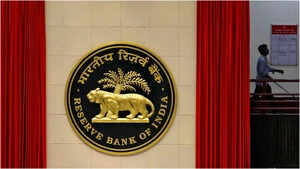
Fundraising through public issues could see an uptick in 2023 as retail investors bet on attractive interest rates and companies look to diversify their funding portfolio under tightening liquidity conditions, bankers and analysts said.
Indian companies raised around 5.38 trillion rupees ($64.95 billion) through private placements in 2022, largely aided by the banking system’s massive cash surplus, data showed.
Public issues were only to the tune of around 80 billion rupees.
“As rates are settling at higher levels, retail investors would be keen to put funds in public issues,” said Ajay Manglunia, managing director and head of investment grade group at JM Financial.
“Companies could also use this window to diversify their funding profile, so we should see more issuances in January-March as well as in 2023.”
Corporates have traditionally preferred raising funds via private placements due to its ease, shorter execution time, and lower costs overall.
However, with the Reserve Bank of India (RBI) looking to unwind the extraordinary stimulus offered during the pandemic and curtail surplus cash to tame inflation, issuers would be left chasing a limited pool of money from institutional investors, making private placements tougher, bankers said.
Indian companies raised 127.1 billion rupees and 175.3 billion rupees through public issues in 2020 and 2021 respectively, SEBI data showed.
Fundraising through private placement stood at 8 trillion rupees and 6.31 trillion rupees respectively.
Despite the higher costs of public issues, fund diversification and brand building for non-banking and micro-finance companies are likely to prompt interest from issuers, bankers said.
RATES TO REMAIN ATTRACTIVE
Bond markets were highly volatile in 2022, due to a combination of the war in Ukraine, the U.S. Federal Reserve’s policy tightening, high inflation, and the RBI’s rate hikes.
The coming year, however, is expected to be less erratic with yields remaining elevated, a positive for retail investors.
Adani Enterprises and Indore Municipal Corporation are set to make their first-ever public bond offering.
Other non-banking finance companies like L&T Finance Holdings, Indiabulls Housing Finance and Muthoot Finance among others are lining up to tap the market in January-March, merchant bankers said.
Several non-banking financial companies and micro-finance companies also prefer retail investments, which helps them attract funding from development finance institutions and global investors.
“We’re expecting one more issuance to happen before the current financial year ends,” said Oommen Mammen, chief financial officer at Muthoot Finance.
“Certainly, more companies will venture into public issue of bonds in the next year.”
The RBI is largely expected to pause its current rate tightening cycle after one more 25-bps increase in February, and the markets have largely factored that in.
“I think public issues are rising because the repricing of bank fixed deposits was very gradual, while public issues are realigning to market realities much faster,” said Sudhir Agrawal, executive vice president and fixed income fund manager at UTI Mutual Fund.
Also Read:
